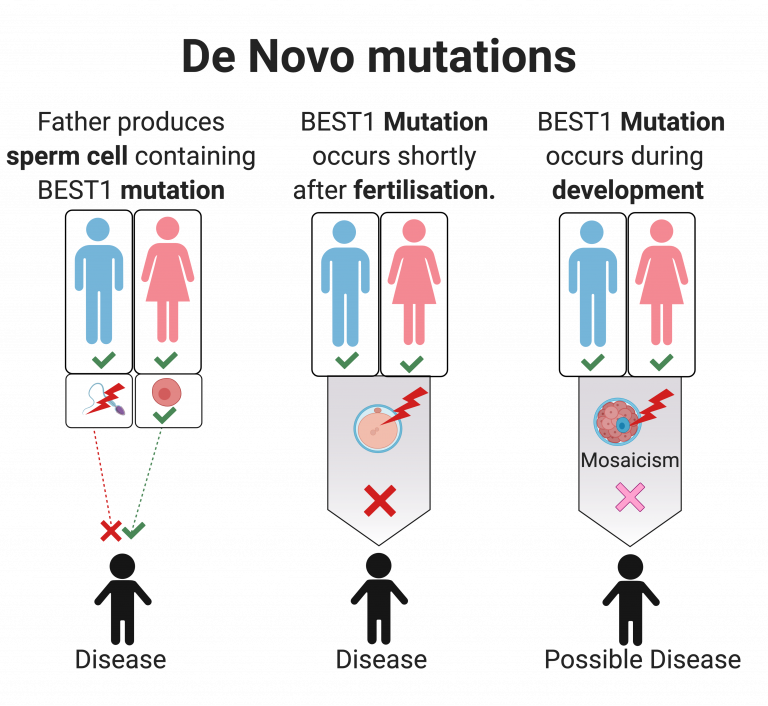De novo mutations are changes in the gene sequence not inherited from parents. They are new mutations and have been absent in families in previous generations.
A de novo mutation is a new change in the gene sequence, which hasn’t been present in any previous generations, and does not “run in the family”. In this case both mother and father have normal copies of the gene. De novo mutations do not appear on genetic pedigree diagrams (used to assess the mode of inheritance of a particular disease in families).
There are a number of scenarios in which de novo mutations can occur.
- The mutation occurs in a sex cell of the parent i.e. the BEST1 mutation is present only in a sperm cell or egg cell of a parent, but all the other cells in that parent are normal. The mutation is then passed on to the developing embryo and all cells will contain the mutated copy of the gene. In this scenario, the de novo mutation can be passed onto the next generation as an inherited mutation.
- Some disease-causing mutations can occur once the egg is fertilised and begins to divide. If this happens early in development, before the cells begin to specialise to produce the variety of different tissues and organs in the body, every single cell in the developing embryo will contain a copy of the mutation. In this case, the mutation will then be expressed in the egg/sperm cells the individual goes on to produce, meaning the mutation could be passed on to subsequent generations.
- De novo mutations can occur in single cells in later stages of embryo development. In this case, as the embryo develops further, all cells arising from the single mutated cell will contain the mutation. This means some cells of the body will contain the mutation whilst others won’t, a phenomenon termed mosaicism. In the case of BEST1, if the mutation occurs in a cell that contributes to eye development the mutation could cause disease. The mutation may not be present in the egg or sperm cells of the individual, if this happens the disease will not be passed on.
De novo mutations are rare, but they can explain how a genetic disease develops when there has been no previous history within the family. De novo mutation can be passed down in future generations as inherited mutations.

 Close
Close

